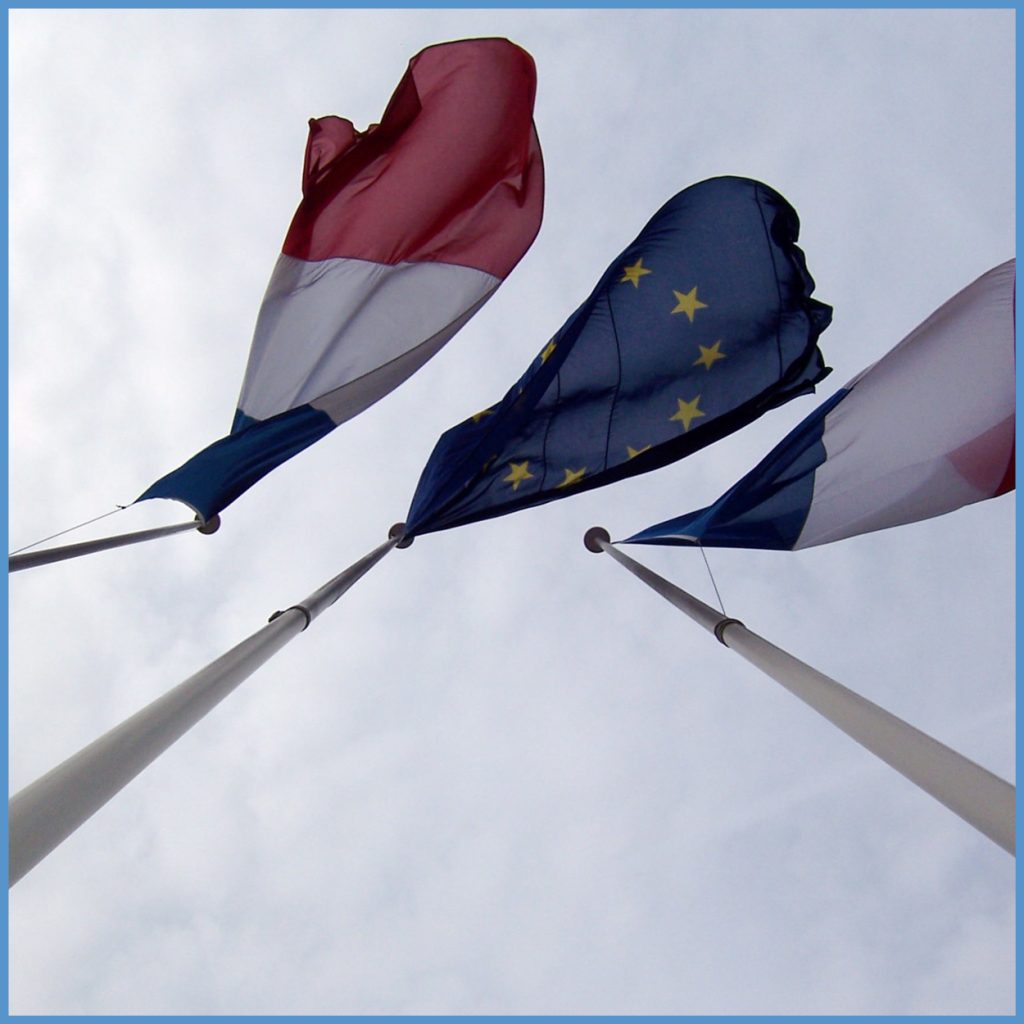[FR] French public opinion and Europe between distrust and ambivalence
EUROPE’S NECESSARY “RETURN TO FRANCE”

French people’s relationship with the EU: ambivalence and very strong euroscepticism
France is among the group of countries whose inhabitants are least favourable to the EU. Yet although the French attitude to Europe is marked by gloom and distrust, we should not come to the hasty conclusion of widespread and unequivocal euroscepticism among French citizens.
It is necessary to conduct an in-depth analysis of the complex nature of the French attitude to the EU.
To do so, it is important to distinguish two types of “political support”: “diffuse support” (more intangible feelings and attitudes: endorsement of a vision, of values, etc.) and “specific support” (assessment of the effectiveness of actions conducted on an EU level). On the basis of this distinction, it is possible to identify an initial characteristic feature of French citizens’ ambivalent attitude towards Europe: support for the EU is greater on a more diffuse level (while 53% of French people are attached to Europe, 57% believe that the European Union is “remote” and 65% think that it is not “effective”, against 49% for total public opinion in Member States). By focusing on citizens’ assessments of Europe’s actions, a comparative analysis can be used to define France’s support for the European Union in relation to other Member States.
This analysis outlines a geography and typology of opinions on the EU from which the following elements emerge:
- An initial divide on a European level separates more favourable States from less favourable States with regard to European integration approaches. The French belong to the group of Europeans with the most negative attitudes towards the EU. In the former group are (in ascending order of EU support) Ireland, Denmark, Portugal, Luxembourg, Lithuania, Romania and Malta. In the latter group are (in ascending order of opposition to Europe) Slovenia, Cyprus, the Czech Republic, France, Italy, the United Kingdom and Greece.
- A social divide is the second major fault line for all Member States and France in particular. European integration is negatively perceived by the working classes, workers, the unemployed and those who finished their studies before the age of 16. Those belonging to the most underprivileged groups of society very broadly view Europe as a threat to national social protection systems.
- The typology can be broken down into four groups of attitudes towards the EU, according to position and intensity. French attitudes can be categorised as follows: 37% belong to the first group (quite positive Europeans), 43% to the second group (quite negative Europeans), 5% to the third group (the most positive Europeans) and 15% to the last group (the most negative Europeans). In the rest of Europe, there are twice as many with the most positive attitudes, and two times fewer with the most negative views.
Euroscepticism at a very high level but of a complex nature and far from being systematic
Although France ranks among the countries in which eurosceptic judgements are the most common, French citizens can also show their favour for Europe on certain issues. Pro-European attitudes can occasionally bring together around three quarters of French people. It is therefore important to go beyond the distinction between pro-Europeans to understand why and how French public opinion, which is highly critical about many issues, can flip so that a majority expresses pro-European positions with regard to other issues.
These seesaw movements are above all due to ambivalent individuals expressing a “neutral” position towards the EU. This can be identified through one of the Eurobarometer questions. These “ambivalent” people relate more to europhiles for some issues, and to eurosceptics for others:
- Proximity to europhiles: openness to others, massive endorsement of the EU’s principles (regarding the right to work in all Member States, 84% of “ambivalents” consider this a good thing), of common policies (regarding the European Economic and Monetary Union with a single currency, the Euro, 76% of “ambivalents” are in favour) and of the importance of the EU’s voice in the world (73% of “ambivalents” acknowledge this importance, which clearly sets them apart from individuals expressing a negative opinion, who represent only 39%).
- Proximity with eurosceptics: misconceptions of the EU are a source of a shift from endorsement in principle to distrust (only 22% of “ambivalents” have some trust in the EU, which brings them closer to eurosceptics. This percentage falls to 4% when the percentage of individuals expressing a positive judgement rises to 65%.
Misconceptions regarding how Europe functions are a major driver of French citizens’ distrust of Europe (France ranks lowest out of the 27), and almost everyone agrees with this statement (positive, ambivalent and negative).
Far from being systematic, French euroscepticism is expressed differently according to the more or less complex profiles which position themselves in varying manners according to the issues addressed. The cultural factor is a major element to explain this ambivalent attitude that French citizens have towards Europe.
How can the ambivalent relationship between the French and “Europe” be explained?
French people’s attitudes to Europe are marked by a national sense of “projection” which reflects the ambivalence at the heart of relations between the French and “Europe”: either Europe is perceived as an “instrument” serving France, or it reveals or mirrors a distortion of the famous “French exception”.
In this respect, several explanatory factors of a cultural nature can be put forward to gain an understanding of the specific relationship that the French have with the EU:
- A unitarian political culture which is out of phase with the European culture of compromise: The unitarian conception of sovereignty in France comes up against the pluralist conception of institutional and political practice within the EU. This French attitude to political practice has an effect on the understanding of reality and the complex nature of politics on an EU level: difficulties in endorsing the practice of compromise, in acknowledging the legitimacy of defending private interests, in adapting to the system of variable geometry majority coalitions.
- A social and economic culture marked by a level of distrust and even hostility towards liberalism: negative perceptions of liberalism, free trade and competition have a negative impact on the relationship that many French people have with the market which constitutes the heart of the European Union. Therefore, 40% of French citizens consider liberalism as something negative. Similarly, for 30% of French citizens, free trade is considered negatively (ranking last among the countries polled). Lastly, for 29% of French citizens, competition is considered to be a negative thing. The Colbertist tradition remains very pronounced in France and is at odds with the reality of the European Single Market, as demonstrated by debates in France on industrial policy and competition policy. The difficulty in France of accepting the very term “liberalism” and the French preference for public spending may also reflect the “hidden face” of the state-centralism of French political culture. Distrust towards the Stability Pact confirms the limited importance France gives to another key figure in the political culture present in public debates in other countries: the taxpayer. Furthermore, the fact that political controversies in France continue to open up for debate choices (on the State’s role, competition, fiscal balances) which have been decided by the treaties heightens the rift and the feeling of a relatively undemocratic straightjacket.
- This national sense of projection allows us to put French reservations regarding enlargement into perspective. For more than half a century, France successfully combined two radically different visions of the rationale behind its European commitment: firstly, the “founding fathers” plan (convergence of Member States’ interests) and, secondly, the Gaullist project of Europe as an instrument allowing France to promote its national interests. The enlargements to Central and Eastern European countries have forced France to clarify its European project as the French are discovering that “Europe is not a bigger version of France”! This is most likely the main reason behind nostalgic rhetoric, in France in particular, about a “little Europe” and the difficulty of accepting change on the level of the enlarged Union.





